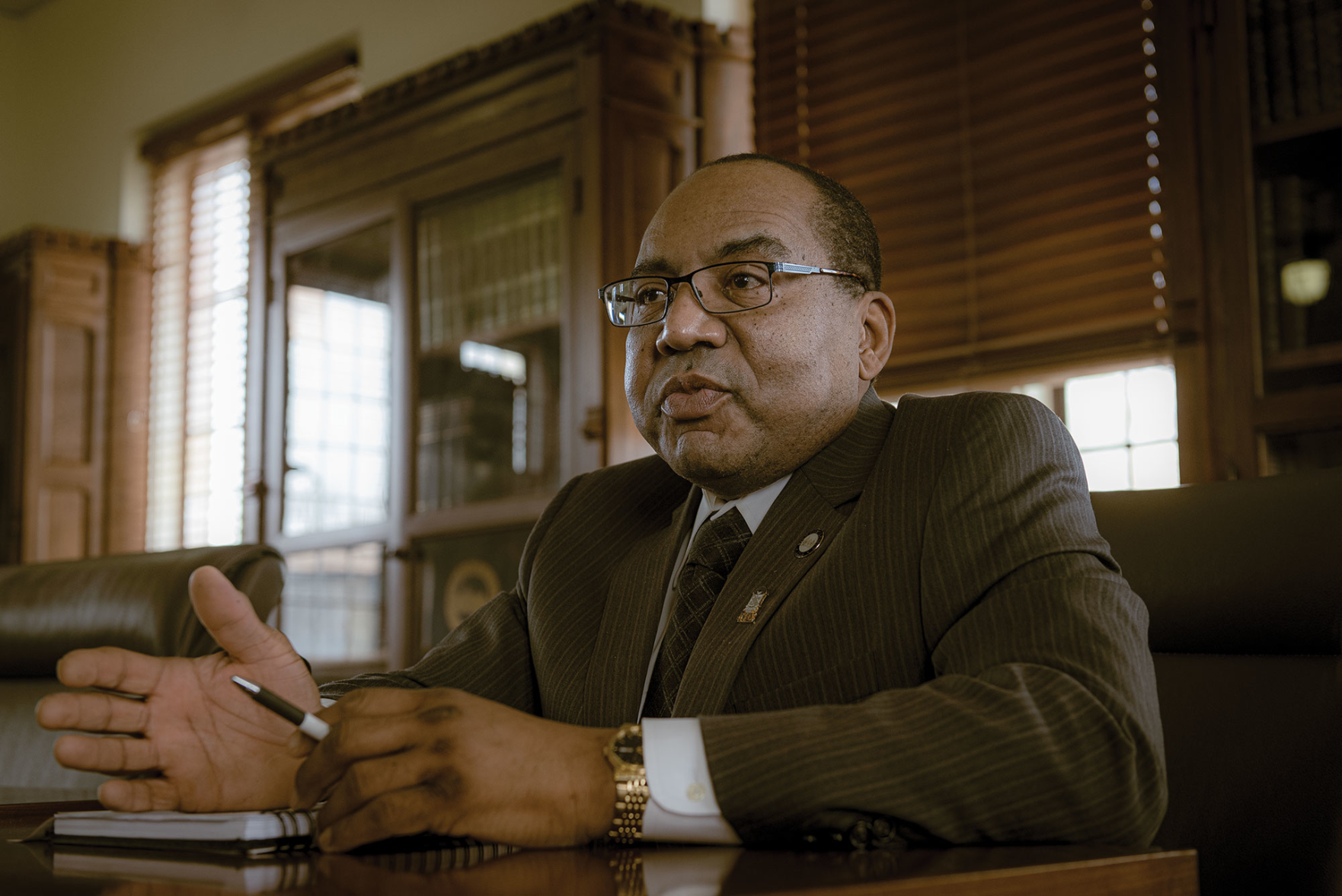
Vann Newkirk took over as interim president of Nashville’s Fisk University in August — the school dropped the interim tag earlier this year.
It was a tumultuous time for the university and its new president, whose predecessor abruptly left amid abuse allegations. Newkirk was leading a college for the first time as it sought to prevent the spread of COVID-19 on campus. He was also doing so on a social-justice-focused campus long known for churning out prominent Black activists, as a wave of anti-racist protests consumed the city and the country.
But, it seems, he was in the right place at the right time. Newkirk is a historian by training, with a focus on lynchings and mob violence.
“I grew up in Eastern North Carolina, where a lot of history was made,” Newkirk tells the Scene. “And so I heard all kinds of stories growing up. Some of those stories I didn’t believe. They were ghost stories.”
Newkirk became interested in history because of those stories, he recalls. On the way to earning two master’s degrees and a doctorate, he learned more about the history that had been passed down by his family and community.
“I started doing research and finding that many of those stories that I thought had been just pure tales were true,” he says.
During Newkirk’s time in academia, he also developed a specialty in college accreditation, which led to his first encounter with Fisk University. He consulted for the small private HBCU, but wasn’t quite ready to leave his native North Carolina for a full-time role in Nashville. That changed a few years later when he accepted a job as provost at Fisk.

“The rest,” he says, “is history.”
But consulting on accreditation matters was not Newkirk’s introduction to Fisk. Coming from a long line of HBCU students, he was well aware of the university and its famed alumni. And as a historian specializing in racial violence, he learned even more — anti-lynching activist Ida B. Wells was once a Fisk student, for example.
That institutional history is what Newkirk hopes to build on in Fisk’s next decade. He has normal growth targets for the school’s next few years: nearly double enrollment to approximately 2,000 students, add more satellite campuses like the new one in Clarksville, and continue to add undergraduate and graduate degree programs. But he also wants Fisk to maintain and burnish its reputation as a leader in social justice.
That work starts at the John R. Lewis Institute for Social Justice at Fisk, newly renamed for one of the school’s most famous and beloved graduates. Newkirk plans to add a doctoral track to the school’s already-unique master’s in social justice program.
“We’re known as the birthplace of social justice for Tennessee — indeed, the nation,” Newkirk says. “We want the social justice part that we’ve been known for to become one of our lamplights. That’s what we’re going to be known for in this city. We want to make sure that we keep that torch in front of the university and keep that torch in front of the folks in Nashville to know exactly who’s pushing the envelope to get this university and to get the city to where it needs to be.”
Perched in his office in Cravath Hall, Newkirk oversees a campus where people as influential as Diane Nash, Nikki Giovanni and W.E.B. Du Bois got their start. He thinks the school is currently educating another generation of like-minded thinkers, but he also recognizes the role Fisk has played in history.
“It means that we were doing something right,” Newkirk says. “We’re producing people who are concerned about their fellow man.”
Photographed by Eric England at Fisk University.





